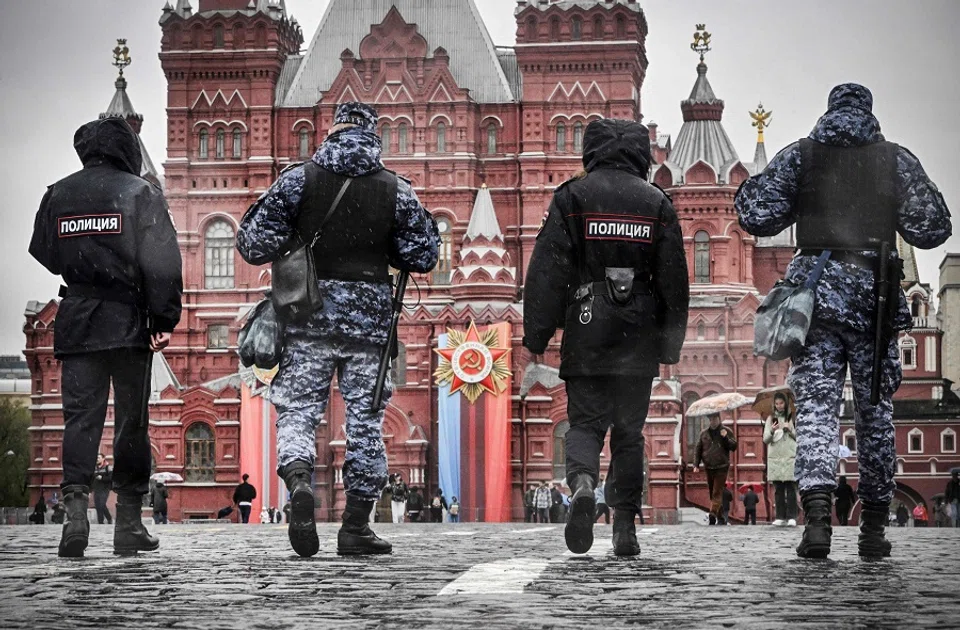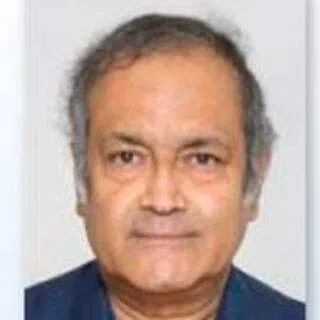Can the Russia-India-China (RIC) troika overcome its existential dilemma?
The geopolitical Russia-India-China (RIC) troika was conceptualised by Russian leader Yevgeny Primakov in 1996 to challenge the unipolar dominance of the US. With waxing and waning progress, though, the RIC today faces an existential dilemma. China and Russia are coordinating among themselves for a "new era"; India is autonomously making common cause with the US, Australia and Japan in the Quadrilateral Security Dialogue. However, the RIC could still explore geostrategic coordination and geoeconomic partnership. For this, the troika must seize the opportunity of India hosting the summits of both the Shanghai Cooperation Organisation and the Group of Twenty later this year.

Present in the background as a concept since the 1990s but never quite becoming a full-fledged group with a strategic glue, the Russia-India-China (RIC) informal platform is in danger of losing even greater relevance in a changed milieu, unless new realities are addressed.
China's rise as a major powerhouse since the mid-1990s, and the latest efforts by the US to "outcompete" China and Russia, constitute the RIC's new landscape. Both Beijing and Moscow have been identified by Washington as its main "strategic competitors".
... the attractiveness of the Quadrilateral Security Dialogue (Quad) outweighs the utility of a nominal RIC, even if India is not an equal member in the Quad, at least as of now.
To meet this challenge, Chinese President Xi Jinping and Russian President Vladimir Putin agreed, on 21 March 2023, to "deepen" their countries' "coordination for the new era". Furthermore, Xi promised "constructive" Sino-Russian "efforts to shape a multipolar world and improve global governance".

From Xi's perspective, the "new era" is the ongoing period towards China's rejuvenation and global role. Putin, too, reckons that the "era of [US-centric] unipolar world order comes to an end" now. He believes that the only way to enhance interstate confidence is to "reinforce the modern multipolar world system".
Where does India, the other RIC member, figure in this new era? India has long sought to preserve strategic autonomy, and a multipolar world order is its preferred choice. In this context, the attractiveness of the Quadrilateral Security Dialogue (Quad) outweighs the utility of a nominal RIC, even if India is not an equal member in the Quad, at least as of now.
Such divergence and mutually exclusive alignments in the Russia-India-China triangle are a far cry from the days of the genesis of RIC.
The RIC's heyday
In response to US unipolarity in the 1990s, the idea of the RIC as a platform for a "doctrine of multipolarity" was born. Then Russian Prime Minister Yevgeny Primakov's intention was for Russia to challenge perceived American efforts to shape its post-Soviet future.
India was open to the idea, being keen to protect its strategic autonomy, exercised in instances such as resisting Washington's pressure to accept the Comprehensive Nuclear Test Ban Treaty. For China, still wary of a suspected US role in the "Tiananmen incident", a better relationship with both Russia and India was a good option in the 1990s.
On such an ideational "geopolitical basis", the RIC foreign ministers began meeting at mutually convenient times. These meetings, nearly 20 so far, have remained as dialogue sessions on topical issues - not decision-making exercises.
Delhi's apparent tilt towards the US during Trump's visit to India in February 2020 dampened the Sino-Indian relationship once again. It worsened further after the Sino-Indian military clash in June 2020.

The year 2019 was a bright spot. After the 16th meeting of the RIC foreign ministers in Zhejiang in February, China said they agreed to study the feasibility of a mechanism for the RIC defence ministers. In June, Xi, Putin and their Indian counterpart Narendra Modi met on the margins of the Group of Twenty (G20) Osaka summit despite a climate of US' tech-and-trade campaign against China.
Xi advocated RIC cooperation in 5G and other high-tech areas. The RIC was indeed seen in 2019 as having come of age as a forum that could stand up to hegemonic statecraft.
However, Delhi's apparent tilt towards the US during Trump's visit to India in February 2020 dampened the Sino-Indian relationship once again. It worsened further after the Sino-Indian military clash in June 2020.
Added to this chain of events is the compounding factor of Russia's invasion of Ukraine in February 2022, its global economic consequences, and the adversarial US-Russia ties. India's participation in the activities of the Quad, and the widening US-China tech standoff also impact the RIC.
A second wind for the RIC?
Can the RIC have a new rationale? Could a Russia-China-India bloc emerge on the strength of the Chinese RMB's potential to catalyse trade settlements by overcoming the current US-led sanctions on Russia?
During the Russian-Chinese expanded talks in Moscow on 21 March 2023, Putin told Xi: "We support using Chinese yuan in transactions between the Russian Federation and its partners." At a press conference later on the same day, a point Putin made was the rising usage of the rouble and yuan to settle Sino-Russian commercial transactions. In the RIC spirit, can Russia extend this practice to include India as well?
Delhi and Moscow are no strangers to the rupee-rouble settlement of commercial transactions, especially in roubles at present. However, Russia and China will have a hard time convincing India to opt for Chinese currency to settle commercial transactions with Russian entities.
But the Sino-Indian differences over a range of issues are well-known. On 4 April 2023, China claimed "sovereign rights" over Arunachal Pradesh (calling it Zangnan) which, as a border state in India, is represented in its Parliament. Furthermore, a US intelligence assessment in 2023 is that the "risk of armed confrontation between [the] two nuclear powers [China and India]" might involve "direct threats" to American "interests".
Both Beijing and Delhi respectively maintain mutually beneficial ties with Moscow. As a result, there has been no parting of ways among the RIC members.

In terms of Russia-India relations, Russia does retain a degree of strategic trust in India despite the latter's membership in the Quad. Unsurprising, therefore, the UN secretary-general Antonio Guterres sought India's help to end Russia's ongoing war in Ukraine. India's former permanent representative at the UN, T S Tirumurti, has disclosed that he was requested by Guterres to explore if Delhi could speak to both sides. Modi did speak to both Putin and Ukraine President Zelensky in this regard.
While RIC today is rocked by US-Russia hostility, adversarial trends in the Sino-Indian ties, and the US-China tussle over science-technology and trade issues, a few silver linings include the intricately networked Sino-American ties and the neighbourhood imperative in Sino-Indian relations. Both Beijing and Delhi respectively maintain mutually beneficial ties with Moscow. As a result, there has been no parting of ways among the RIC members.
Unveiling a new foreign policy "Concept" recently, Russia states that it seeks the "enhancement of coordination" with both Beijing and Delhi in the Eurasian continent. Clauses 51 to 53 of the "Concept" identifies China and India as "sovereign global centres of power and development" whose approaches coincide with Russia's for a "future world order". In foreign policy terms, Russia's new "Concept" reveals Russia's primary focus on the Eurasian continent.
India still the outlier?
To participate in this enhanced coordination with Russia, China has its Global Security Initiative, Global Development Initiative, Belt and Road Initiative etc. Institutions with a heavy Chinese stake - the UN Security Council (UNSC), the Shanghai Cooperation Organisation (SCO), the Asian Infrastructure Investment Bank, New Development Bank and G20 - offer Beijing avenues to pursue its goals.
In India's case, however, neither the SCO (dominated by China and Russia) nor G20 (where economic might counts) is an ideal platform for India to pursue its foreign policy goals. Might the Quad suit India? Following the G20 foreign ministers' meeting in Delhi in early March 2023, the Quad ministers held a conclave too.
While China holds the trump card, there can be no RIC without India.

In a coded reference to China and Russia, the Quad foreign ministers expressed commitment to "address attempts to unilaterally subvert the UN and [the] international system". The phrase subsumes India's long-held aspiration for permanent membership in the UNSC on par with China. India seems to be persuading the Quad to globalise the issue of multipolarity, a RIC mantra, albeit under the US watch.
The RIC has an opportunity to meet on the margins of the summits of both G20 and the SCO. Both summits will be hosted by India later this year. The transformation of the RIC into a geopolitical-and-geoeconomic platform could be discussed.
If all three countries attend the SCO ministerial meeting, scheduled to take place in Goa on 4 and 5 May, the RIC foreign ministers could perhaps set the stage and hold a separate dialogue among themselves. While China holds the trump card, there can be no RIC without India.
Related: India and Russia remain on opposite sides of the Indo-Pacific's balance of power | India's G20 presidency: Can China and India cooperate to create an 'Asian moment'? | India in Quad: Black sheep or dark horse | AUKUS and Quad do not solve India's regional security problems | Why India's neutral stance in the Russia-Ukraine war works | On the wrong side of geography: Why is India tolerating Putin's Ukraine gambit?





![[Photos] Fact versus fiction: The portrayal of WWII anti-Japanese martyrs in Taiwan](https://cassette.sphdigital.com.sg/image/thinkchina/3494f8bd481870f7c65b881fd21a3fd733f573f23232376e39c532a2c7593cbc)